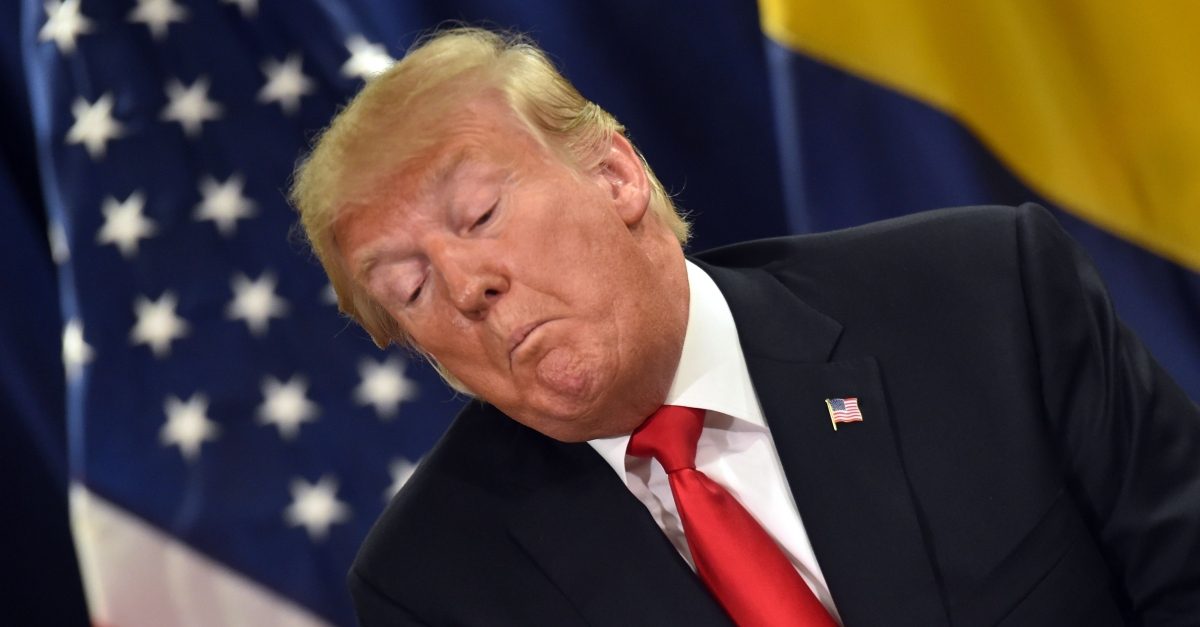
Following the resignation of Dan Coats as the Director of National Intelligence (DNI), President Donald Trump on Sunday announced that he would be nominating Republican Rep. John Ratcliffe (R-Texas) to permanently fill the role. Trump ended his announcement with a cliffhanger, promising that he would be naming an Acting Director “shortly.”
“I am pleased to announce that highly respected Congressman John Ratcliffe of Texas will be nominated by me to be the Director of National Intelligence. A former U.S. Attorney, John will lead and inspire greatness for the Country he loves. Dan Coats, the current Director, will be leaving office on August 15th. I would like to thank Dan for his great service to our Country. The Acting Director will be named shortly,” Trump tweeted Sunday afternoon.
It appears that president failed to read the fine print regarding the parameters of his authority when the DNI position is vacated.
According to the 50 U.S.C. §3026(a)(6), the statutory provision governing the line of succession for the Director of National Intelligence, in the event that the DNI position becomes unoccupied, the Principal Deputy Director of National Intelligence necessarily assumes the DNI role.
“The Principal Deputy Director of National Intelligence shall act for, and exercise the powers of, the Director of National Intelligence during the absence or disability of the Director of National Intelligence or during a vacancy in the position of Director of National Intelligence,” the statute reads.
Thus, despite what President Trump may be planning, unless she preemptively resigns from her post on August 15, the current Principal Deputy Director Susan M. Gordon will become the Acting Director of National Intelligence. Put another way, there is no tease here. This is what’s supposed to happen.
Although this situation is circumstantially very similar to the highly public 2017 dispute as to whether Trump had the authority to appoint an acting director to the head of the Consumer Financial Protection Bureau (CFPB) (spoiler, he did), there is a crucial difference regarding the DNI succession. Replacing the head of a federal agency is governed by the Federal Vacancies Reform Act (FVRA), which applies for temporary presidential appointments “unless…a statutory provision expressly designates an officer or employee to perform the functions and duties of a specified office temporarily.”
Because the DNI statute expressly names the Principal Deputy as the employee to assume DNI duties in the case of a vacancy, the president has no authority to name an Acting Director.
[image via NICHOLAS KAMM_AFP_Getty Images]
Have a tip we should know? [email protected]